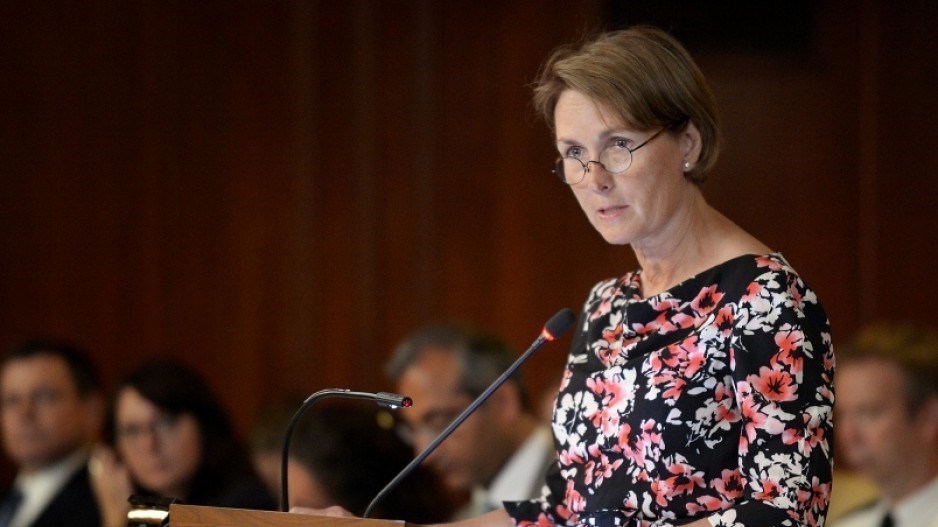A B.C. Supreme Court judge has ruled the scandal-plagued B.C. legislature over-interpreted its rights to parliamentary privilege in relation to a high-profile civil lawsuit involving former Representative for Children and Youth Mary Ellen Turpel-Lafond.
Prior to Chief Justice Christopher Hinkson’s Jan. 17 ruling, former BC Liberal attorney general Geoff Plant, now representing the Legislative Assembly with firm Gall Legge Grant Zwack LLP, argued that allowing Turpel-Lafond’s lawsuit to go to trial would “require the court to inquire into the Legislative Assembly’s internal proceedings … and that such judicial interference would undermine the autonomy of the Legislative Assembly and the ability of its officers to conduct their business.”
Such internal proceedings, shielded by freedom of information laws and certain aspects of government intervention, are at the root of allegations of excessive and inappropriate use of public funds by senior legislature officials. Last November, independent Speaker of the House Darryl Plecas suspended the legislature’s senior officer, clerk Craig James, who happens to be a central figure in Turpel-Lafond’s lawsuit.
At the centre of her lawsuit is a 2006 verbal agreement between Turpel-Lafond and James, then deputy clerk, for an “enhanced pension entitlement,” she claims was broken.
Turpel-Lafond is suing the provincial government and the Legislative Assembly after not being paid the alleged promised boosted pension and other costs she says she was entitled to, such as moving expenses.
But prior to the lawsuit even proceeding to court, the Legislative Assembly argued, according to Hinkson’s ruling, that “inquiring into the remuneration and benefits of an officer of the Legislative Assembly falls squarely within a recognized category of parliamentary privilege.
“As a result, the Legislative Assembly contends this Court is precluded from delving into [Turpel-Lafond’s] claim on jurisdictional grounds.”
But Hinkson, who ruled the legislature’s internal proceedings would not be compromised by allowing Turpel-Lafond’s case go to trial, is allowing the case to proceed.
Hinkson noted, “The Legislative Assembly did not explain exactly how judicial scrutiny of whether it has fulfilled contractual terms regarding remuneration and benefits would interfere with its legislative and deliberative functions.”
“The parliamentary privilege asserted in this case is cast too broadly,” he concluded.
Hinkson cited case law in his decision, noting a 1993 ruling by Supreme Court of Canada Justice Beverley McLachlin that acknowledges, “the legislative branch of our government must enjoy a certain autonomy, which even the Crown and the courts cannot touch.”
But Tuprel-Lafond’s claim “does not impugn any acts of the Legislative Assembly that are sufficiently connected to its core legislative and deliberative functions such that a court’s review of those acts would interfere with its work,” added Hinkson.
Turpel-Lafond took a leave of absence as a Saskatchewan provincial court judge before accepting what would become a 10-year tenure as the independent representative for children and youth in December 2006.
Turpel-Lafond thought she had been given 1.5 years of pension entitlement for each year of service. Her claim notes she was required to waive her right to the Saskatchewan judges’ pension during the leave of absence.
She claims, alongside James’ oral agreement, that James provided her a letter in December 2006 that confirmed he was recommending an amendment to the Representative for Children and Youth Act to ensure the boosted pension.




